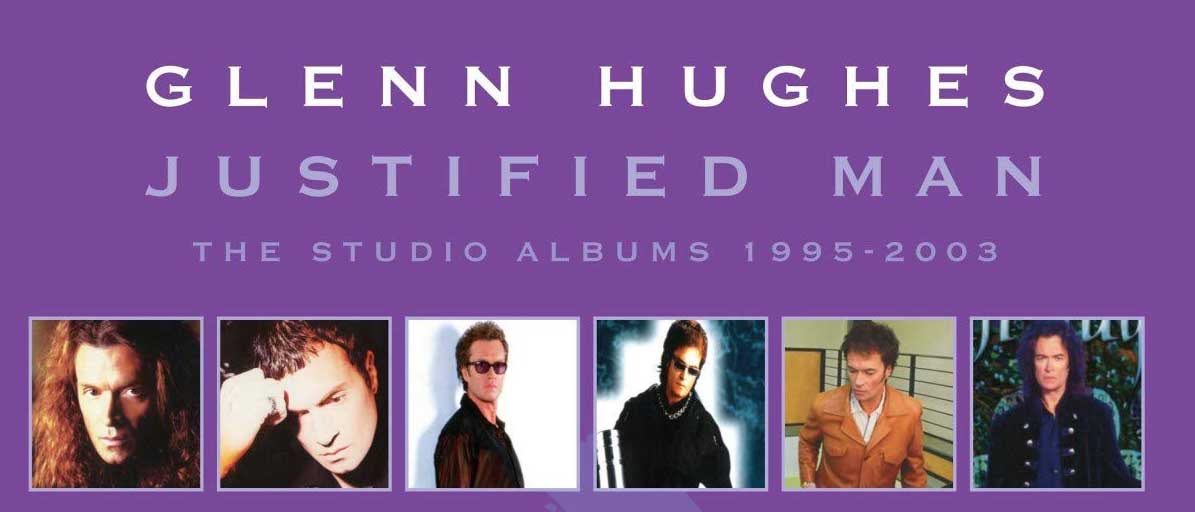You can trust Louder
F or someone famously championed by Stevie Wonder as his favourite white voice, Glenn Hughes has not found it easy to build the kind of legacy that many of his inferiors have successfully achieved. Part of that is down to his refusal to conform to the heavy metal stereotype and its attendant vocal clichés.
On the face of it, these six albums are an opportunity to box up a decade’s worth of Hughes’s career, literally and figuratively. Instead it inadvertently highlights the kind of inconsistencies that stronger management and guidance could have avoided. If Hughes had been listening, that is.
His 1995 album Feel is a wilful switch from metal to soul, with Hughes playing bass again and reuniting with fellow desperado Pat Thrall. It rocks, but with a funky edge. In retrospect it’s one of his better albums, a strong set of songs in need of a vivid production. At the time, though, it felt like Hughes was veering off course. Addiction the following year swerves back towards metal, and again the material and Hughes’s voice are strong enough to bridge the musical tensions that the production can’t conceal.
The pendulum continues to swing. The Way It Is (1999) has a guest list that includes Keith Emerson, Matt Sorum and Stevie Salas, not to mention two versions of Jimi Hendrix’s Freedom, then Hughes is back to his own band for Return Of Crystal Karma (2000), which features Gone co-written with Tony Iommi.
The guests are back on 2001’s Building The Machine – Pat Travers, John Beasley, Vince Dicola – and the songs are becoming more diffused. Songs In The Key Of Rock (2003) continues the trend, with guest appearances from Chad Smith and Billy Sheehan and a song for Hughes’s close mate John Bonham. By now the songs have settled into a serviceable standard (there are no hits) and are carried by Hughes’s voice, which barely ages a day across the decade.
Two points: the time span for this collection is somewhat arbitrary, and the albums have all been reissued in the past few years with bonus tracks and an additional live CD which are not included here. In fact it might have been better to round up those concerts, which generally include a sprinkling of Trapeze and Deep Purple covers.
Sign up below to get the latest from Classic Rock, plus exclusive special offers, direct to your inbox!
Hugh Fielder has been writing about music for 50 years. Actually 61 if you include the essay he wrote about the Rolling Stones in exchange for taking time off school to see them at the Ipswich Gaumont in 1964. He was news editor of Sounds magazine from 1975 to 1992 and editor of Tower Records Top magazine from 1992 to 2001. Since then he has been freelance. He has interviewed the great, the good and the not so good and written books about some of them. His favourite possession is a piece of columnar basalt he brought back from Iceland.


